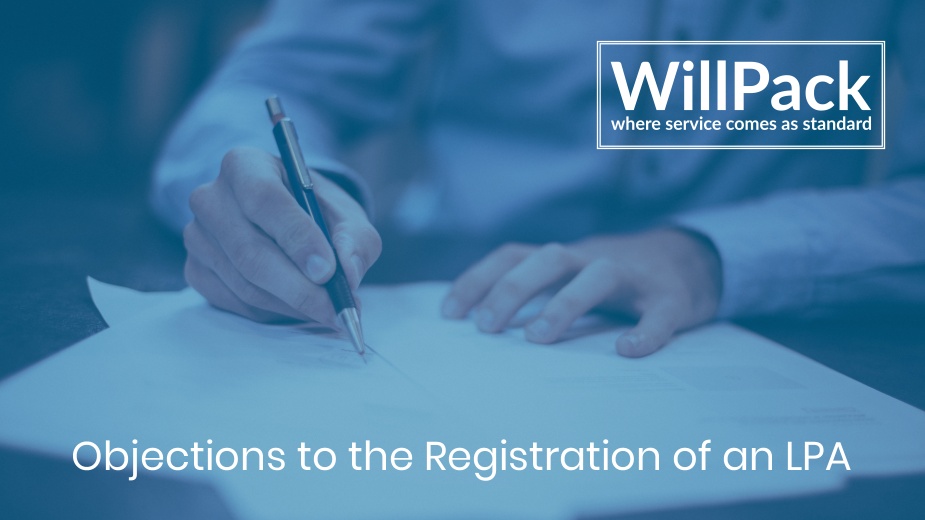When an application to register an LPA is being submitted with the Office of the Public Guardian (OPG), a number of different parties will receive notice of that application. This is to ensure that relevant people are aware of the registration, as there may be a valid reason why that LPA should not be registered with the OPG. This week’s article will cover who can raise objections to the registration of an LPA and the grounds on which they can object.
Objections by People to be Notified and Attorneys
People to be notified (if named) and attorneys are able to bring either a factual objection to the registration of the LPA and also a prescribed objection.
A factual objection would be raised by sending form LPA007 along with any relevant evidence to the OPG. This must be sent within three weeks of the objector being notified of the application to register the LPA, otherwise the LPA may be registered. A factual objection can be made on any of the following grounds:
- The donor is bankrupt or interim bankrupt (for a property and financial affairs LPA only).
- An attorney is bankrupt or interim bankrupt (for a property and financial affairs LPA only).
- An attorney is a trust corporation that is wound up or dissolved (for a property and financial affairs LPA only).
- The donor is dead.
- An attorney is dead.
- A marriage or civil partnership between the donor and an attorney is dissolved or annulled (unless the LPA provided otherwise).
- An attorney lacks the capacity to be an attorney.
- An attorney has disclaimed their appointment.
Where the ground is that an attorney can no longer act, the OPG will still register the LPA as long as there is still another attorney able to act (unless they are appointed jointly) or there are replacement attorneys appointed.
The OPG must not register the LPA if it is satisfied that a factual ground is proven. In such a case, the people registering the LPA can apply to the Court of Protection for a ruling on the grounds. If they rule that the grounds are not established, the Court of Protection can then order the OPG to register the LPA.
A prescribed objection would be raised by sending form COP7 to the Court of Protection and form LPA008 to the OPG. The forms must be sent within three weeks of the objector being notified of the application to register the LPA, otherwise the LPA may be registered. A prescribed objection may be made on any of the following grounds:
- The LPA is not legally valid.
- The donor cancelled the LPA when they had mental capacity.
- Fraud or undue influence was used to pressure the donor into making the LPA.
- An attorney is acting, or intends to act, above their authority or against the donor’s best wishes.
Depending on the objection raised, the Court of Protection may direct the OPG to not register the LPA, may revoke the LPA or revoke part of the LPA (for example revoking an attorney’s appointment).
If the objection relates to a specific attorney, the LPA may still be registered where there are other attorneys (unless they are appointed jointly) or if there are replacement attorneys appointed.
Objections by the Donor
The donor themselves may make an objection to the registration of the LPA using form LPA006. Objections by the donor do not need to be on any prescribed grounds, like objections by other parties. If the donor objects to the registration within three weeks of them being notified of the application to register the LPA, the OPG must not register the LPA. If an objection is made after this time, the LPA may still be registered.
In the event that the donor makes this objection, the attorneys can apply to the Court of Protection if they believe the donor lacks capacity to object to the registration. If the Court of Protection finds the donor does lack capacity, they will order the OPG to register the LPA.
Objections by others
Any other person may also make a prescribed objection. To do this they would need to a firstly apply to the Court of Protection for permission to make the application using COP2 and then make an objection using COP1. They may also need to pay a fee to the Court of Protection.


 © Trust Wills & Probate Limited t/a WillPack. All rights reserved.
© Trust Wills & Probate Limited t/a WillPack. All rights reserved.
One comment
Pingback: Registering an LPA: What happens when an LPA is sent the OPG — WillPack
Comments are closed.